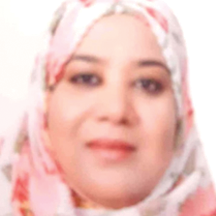
Thouraya Hadj Amor
Assistant Professor, Shaqra University, KSA
Dr. Thouraya HADJ AMOR, Assistant Professor of Economics at Shaqra University-KSA and at the Faculty of Economics Sciences and Management of Mahdia- University of Monastir, Tunisia. Dr. Thouraya holds Masters in International Finance and trade from Sousse University, Tunisia and a joint PhD in Economics from the University of Nice Sophia Antipolis-France and University of Tunis El Manar, Tunisia. Her research focuses on International Macroeconomics, Macroeconomics policies and International Finance and trade. Dr. Thouraya’s research has been published in various refereed journals and presented in international conferences. She serve on the review committee of many international journals. She has consulting experience with African Development Bank Group (Tunisia). Dr. Thouraya is a member of The Middle East Economic Association (MEEA) and a research fellow at The Economic Research Forum (ERF).
Areas of Interest:
- International Finance and Macroeconomics
- Economic Growth and Sustainable Development
- Institutional Economics
- Environmental Economics
Education:
- Ph.D., Economics (High Honors), University of Nice Sophia-Antipolis, France, 2007
- M.A., International Trade and Finance (High Honors), University of Sousse, Tunisia, 2002
Experience:
- Assistant Professor, Department of Business Administration, University of Shaqra, KSA, Sep. 2018 - Present
- Assistant Professor, Faculty of Economics and Management of Mahdia, University of Monastir, Sep. 2010 - Present
- Consultant, African Development Bank, EDRE1, Sep. 2010 - Dec. 2010
Latest Publications:
- Real Exchange Rate Undervaluation and Economic Growth in Tunisia: Evidence from Asymmetry and Threshold analysis, (with Nouira, Rault and Sova), Quarterly Review of Economics and Finance, Volume 88, April 2023, Pages 215-227.
- Political Instability, Corruption and Real Exchange Rate: What can we learn from the CS-ARDL Approach for Emerging and Developing Countries? (With Mohsen Bahmani-Oskooee, Ridha Nouira and Christophe Rault), Journal of Quantitative Economics, Volume 17, Issue 4, December 2019. pp 741–762
- On the link between real effective value of Tunisia’s Dinar and its sectoral trade with the rest of the world: New evidence from asymmetry analysis, (with Mohsen Bahmani-Oskooee, Majid Maki Nayeri and Farhang Niroomand), The Quarterly Review of Economics and Finance 73 (2019) 111–118.
How Economic, Political, and Institutional Factors Influence the Choice of Exchange Rate Regimes? New Evidence from Selected Countries of the MENA Region
Areas of Interest: International Finance and Macroeconomics Economic Growth and Sustainable Development Institutional Economics Environmental Economics Education: Ph.D.,... Read More
October, 2021
Working PapersHow Economic, Political and Institutional factors Influence the Choice of Exchange Rate regimes? New Evidence from Selected Countries of the MENA Region
Areas of Interest: International Finance and Macroeconomics Economic Growth and Sustainable Development Institutional Economics Environmental Economics Education: Ph.D.,... Read More
May, 2021
ERF 27th Annual ConferenceERF 27th Annual Conference: SDGs and External Shocks in the MENA Region: From Resilience to Change in the Wake of COVID-19
Areas of Interest: International Finance and Macroeconomics Economic Growth and Sustainable Development Institutional Economics Environmental Economics Education: Ph.D.,... Read More
May 17, 2021


